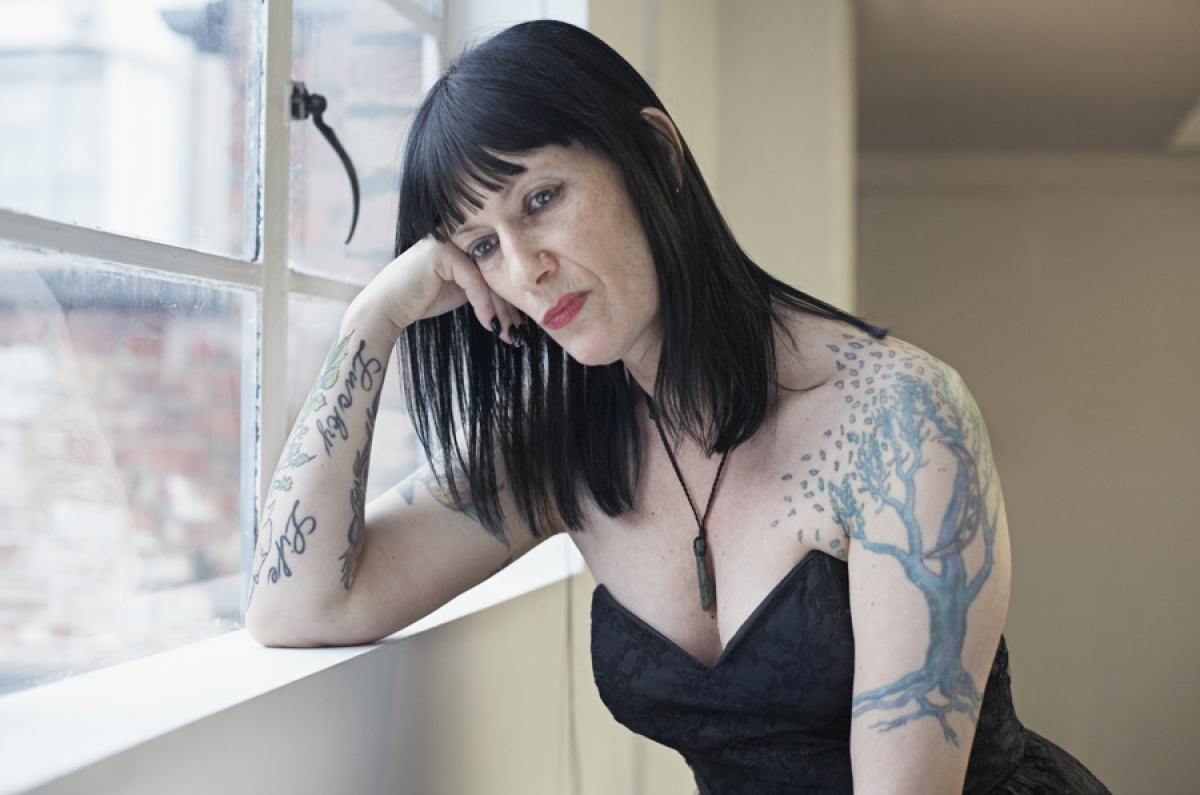This website uses cookies in order to enhance the overall user experience.
Try Your Hand at Mentoring - Digital Media Specialist
Image by Eleni Stefanou in collaboration with Christina Theisen as part of their Women With Tattoos project, partly shot at Netil House
What do you do, in a nutshell?
ES: I work in social media at the British Film Institute. My job is to communicate about the organisation's activities through social media channels and to create online content that celebrates film culture.
What inspired you to become a mentor?
ES: I had an informal mentor at work who I owe so much to. I wanted to see if I could support someone in a similar way and find out what the process could bring out of me; could I develop new skills or discover aspects of my personality that I hadn't yet encountered.
How did you find the experience?
ES: It was a great experience. In our training we were told that often a mentor stands to learn just as much if not more from the process. It's true. I met someone I wouldn't have otherwise had the chance to meet - someone who was a lot younger than me and from a different background. So immediately you're out of your comfort zone, questioning your assumptions and trying to see life through someone else's viewpoint so that you can impart advice and guidance that's tailored to them. The process also gave me a chance to reflect on my career and to articulate what I've learnt over the years in a way that doesn't assume prior knowledge.
What was most challenging?
ES: Trying to find the right balance between guiding my mentee and just being someone that she could bounce thoughts off of. I didn't want to dictate how things were going to go or make statements like 'this is what you should do' or 'this is how it's done', but at the same time our meetings needed structure, especially at the beginning when we were still getting to know each other. I had to take on more of a leadership role because of the mentor/mentee dynamic, but I still wanted to leave loads of room for my mentee to express herself and co-direct the project. Finding that balance was tricky.
What was most surprising?
ES: At the end of the nine weeks, my mentee told me that she felt more confident. She revealed that she almost turned back before arriving at our first meeting, and through Pitch It came to realise that she can do things that might seem scary at first. I was really surprised and moved when she told me. This was the moment I realised how important it is to have someone who believes in you. They might not be able to get you a job, but if they can help you build you confidence that's pretty priceless.
Would you recommend being a mentor?
ES: Absolutely. Every school and workplace should have a mentoring programme.
What else can society do to increase diversity in the creative industries?
ES: That's a really big and difficult question. Fundamentally, society needs to become less divided by class and income. On a more short-term, tactical level, I think increasing apprenticeship schemes and quota systems can create change through policy.
Did you always know you were destined for the arts/creative sector?
ES: I have this memory of my dad, who is an artist, repeatedly telling me to avoid the sector. He wanted to protect me from financial instability and other woes that come with the industry. So I went through a pretty uninspiring process of eliminating the things that I wasn't good at and seeing what remained. I was terrible at sciences, but good at writing, so I studied media and communications. There was never a plan - just a slow gravitation towards the creative world. My heart was always in it, but it took me a while to accept it was something I was allowed to be a part of.
Tell us about your sideproject Women with Tattoos?
ES: Women with Tattoos is a photography project that kind of does what it says on the tin: it explores and documents the artwork that women have tattooed onto their skin. It started as a one-off photo series with the intention of breaking down people's prejudices and preconceptions. It's now expanding into a blog, which will feature more images and interviews. It's also an opportunity for me to meet amazing people and hopefully empower them through photography.
If you ruled London...what would you decree?
ES: I'd introduce rent controls and a flat-rate for public transport to help make the cost of living more affordable. In the spirit of 'ruling', I'd also send Boris Johnson into exile.
Why London for you?
ES: London is a place where you can discover and shape your identity without the social pressures you might find in other parts of the world.
To find out more about Pitch It! and register your interest as a mentor, check out the website and email Isabel: isabel@pitchit.london

